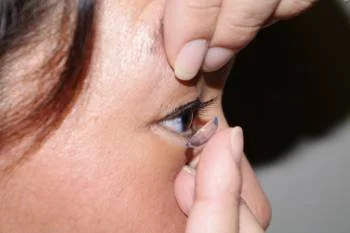
Keratoconus is a condition that affects the cornea, the transparent outer layer of the eye. It is a progressive condition that causes the cornea to thin and bulge into a cone shape, leading to blurred and distorted vision. Keratoconus affects approximately 1 in 2,000 people and usually begins in the teenage years or early adulthood.
The exact cause of keratoconus is not fully understood, but it is believed to be related to a combination of genetic and environmental factors. Some studies suggest that it may be associated with eye rubbing, allergies, and certain systemic conditions, such as Down syndrome and connective tissue disorders.
The long-term consequences of keratoconus can be significant. As the cornea becomes more irregularly shaped, it can cause increasingly blurred and distorted vision, making it difficult to perform everyday tasks such as driving or reading. In severe cases, keratoconus can lead to scarring of the cornea, which can cause even more vision problems.
Fortunately, there are several treatment options available for keratoconus. Let's take a closer look at some of these options.
Corneal Cross-Linking (CXL) is a treatment that can slow or stop the progression of keratoconus. This procedure involves applying riboflavin drops to the cornea and exposing it to ultraviolet light. The riboflavin helps to strengthen the corneal tissue, which can help prevent further thinning and bulging.
Intacs are small, crescent-shaped plastic rings implanted into the cornea to help reshape it. This can improve vision and reduce the need for glasses or contact lenses.
Scleral contact lenses are another option for managing keratoconus. These lenses are larger than traditional contact lenses and rest on the sclera, or the white part of the eye, rather than the cornea. This can help provide clear vision by masking the cornea's irregular shape.
Corneal transplant surgery may be necessary for severe cases of keratoconus that cannot be managed with other treatments. During this procedure, the damaged cornea is removed and replaced with a healthy donor cornea.
In addition to these treatments, it's essential for individuals with keratoconus to have regular eye exams and to protect their eyes from injury and excessive rubbing.
Do you or a family member have Kearatoconus?
Click here to schedule an appointment with one of our doctors today!